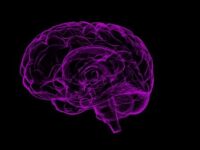For hundreds of years, music has provided humans with a means to enjoy themselves and reduce their stress. Whether it is the serenading melodies of jazz or the flashy beats of hip-hop, music has provided people with a type of natural mood enhancer. Recently, medical research has suggested that music can significantly help people with the infamous Alzheimer’s disease. A neurological disorder, Alzheimer’s progressively affects a patient’s memory and cognitive functions. The primary group at risk is people over the age of 65. In early stages of the disease, patients often suffer from slight memory loss, which during later stages of the disease can develop into severe memory loss, speech impediments, and disturbed sleep. While music does not address the cause of these symptoms, music therapy has been shown to alleviate emotional stress and access buried memories left untouched by the disease.
This astonishing discovery suggested that musical memories were relatively unaffected by Alzheimer’s compared to other memories because unlike other memories, musical memories are dispersed within the brain.
According to Dr. Graff-Radford of Mayo Clinic Hospital, the reason music is able to help with Alzheimer’s disease is because musical memories are often comparatively unaffected by it. Another unique study was done by researchers in 2015 that proved that musical memory is spatially distributed throughout the human brain by using neuroimaging devices such as MRI scanners. This astonishing discovery suggested that musical memories were relatively unaffected by Alzheimer’s compared to other memories because unlike other memories, musical memories are dispersed within the brain.
Another common symptom of Alzheimer’s disease during middle and late stages is agitation and behavioral issues. There have been tests in which a patient’s family played music that the patient often listened to before suffering from Alzheimer’s disease. During these tests, patients were seen to behave with reduced anger. Music is able to reduce stress and anxiety amongst Alzheimer’s patients, which then allows their family and friends to better connect with them, especially when there is often significant difficulty communicating because of the disease.
Although music is not a cure and cannot reverse the neurological damage within an Alzheimer’s patient’s brain, it has been proven to be a healthy way to relieve patients’ stress and anxiety and reduce agitation and impulsive behavior.
Although music is not a cure and cannot reverse the neurological damage within an Alzheimer’s patient’s brain, it has been proven to be a healthy way to relieve patients’ stress and anxiety and reduce agitation and impulsive behavior. In a time where these patients are so vulnerable, it is important for any form of comfort to be provided. Medical research on Alzheimer’s continues, and researchers work to one day find a cure for this dreadful disease.
Image Source: University of Melbourne






